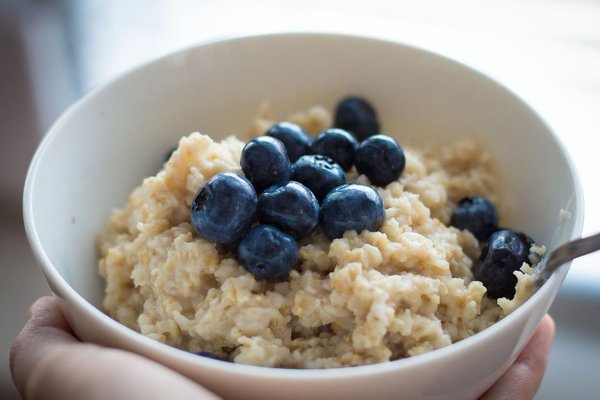By Steve Pak, | January 17, 2016

Whole Grain Cereal
A new study shows that a higher fiber intake can help insomnia sufferers to get a good night's sleep, suggesting a direct link between certain foods and getting shut-eye. Researchers learned that a higher fiber intake helps to boost the time spent in a deep state of snoozing called "slow-wave sleep."
Like Us on Facebook
The study was conducted by Columbia University Medical Center in New York City. It was published by the Journal of Clinical Sleep Medicine.
Columbia researchers were surprised by the study's findings. They discovered that just one day of higher fat or sugar intake, and lower fiber intake could have a big effect on slow-wave sleep, according to CNET.
It was discovered that more saturated fat and less fiber results in sleep that is lighter, less revitalizing, and more irregular.
Lead researcher Dr. Marie-Pierre St-Onge is an assistant professor at the department of medicine and Institute of Human Nutrition at the Columbia University Medical Center. She explained that the study's main finding was that diet quality affects sleep quality.
The Columbia University team also discovered that the study's participants fell asleep faster when a nutritionist provided the food and beverages of fixed meals instead of people selecting them. They fell asleep an average 12 minutes faster.
St-Onge explained that discovering the big effects of diet on sleep has many health applications. That is due to medical researchers learning the effect of sleep on developing severe disorders such as high blood pressure, diabetes, and heart disease, according to Science Daily.
Health experts recommend that insomnia sufferers consume certain foods and drinks before going to bed. They include milk, green tea, cherries, bananas, sweet potatoes, rice, fortified breakfast cereal, and turkey.
The crossover study included 26 adults (13 men/13 women) with a normal weight and 35-year-old average age. Volunteers slept an average 7 hours and 35 minutes per night, and sleep data was collected every evening.
Researchers explain that the diet recommendations might help people with poor sleep quality. However, more research is needed to study the relationship further.
The United States' Centers for Disease Control and Prevention (CDC) reports that one-quarter of the U.S. population does not get enough sleep. That includes almost 10 percent that suffers from chronic insomnia.
Here are some natural remedies for sleep disorders:
-
Use of Coronavirus Pandemic Drones Raises Privacy Concerns: Drones Spread Fear, Local Officials Say

-
Coronavirus Hampers The Delivery Of Lockheed Martin F-35 Stealth Fighters For 2020

-
Instagram Speeds Up Plans to Add Account Memorialization Feature Due to COVID-19 Deaths

-
NASA: Perseverance Plans to Bring 'Mars Rock' to Earth in 2031

-
600 Dead And 3,000 In The Hospital as Iranians Believed Drinking High-Concentrations of Alcohol Can Cure The Coronavirus

-
600 Dead And 3,000 In The Hospital as Iranians Believed Drinking High-Concentrations of Alcohol Can Cure The Coronavirus

-
COVID-19: Doctors, Nurses Use Virtual Reality to Learn New Skills in Treating Coronavirus Patients











